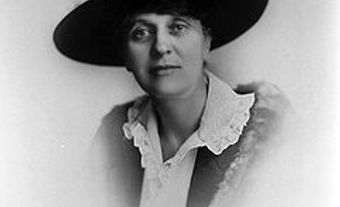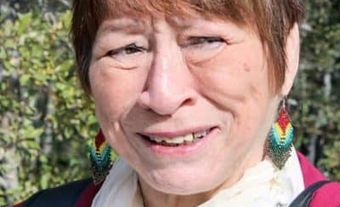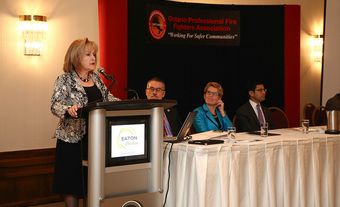
Education
Born in a poor family of 13 children, Camille Laurin saw his father work hard during the Great Depression, working successively as a miller, barber, restaurateur and taxi driver. Provincial parliamentarian Paul Gouin, who had just founded the Action libérale nationale (National Liberal Action), sponsored this brilliant boy to complete classical studies at Collège de l’Assomption, where he quickly rose to the top of his class.
With a curious mind, he engaged indiscussions in the English at St. Mary’s English Academy. Young Laurin was a compulsive reader who devoured the canonical works of Lionel Groulx, who inspired the creation of the first academic chair of Canadian history at Université Laval de Montréal (which became the Université de Montréal). At the Académie Saint-François-Xavier, he discussed all the books of this historian who, a few years later, would inspire the works of the historians of the "Montréal School," namely Guy Frégault, Michel Brunet and Maurice Séguin.
Psychiatry in the United States and France
In September 1942, he enrolled in the Grand Séminaire de Montréal at the Sulpicians, but he found it difficult to accept the restrictive climate of the clergy of the time and he left the seminary after seven months. He enthusiastically enrolled for the 1943 academic year in the Faculty of Medicine at the Université de Montréal (UdeM), where he earned astonishing grades, including 100 per cent in gynecology, neurology, psychiatry and urology. He worked on and then edited the Quartier Latin, the UdeM student newspaper. With a strong interest in his field, he participated with his fellow medical students in group discussions related to medical ethics and psychiatry issues.
In 1949, he wrote to the director of medical studies to obtain a rotation at Queen Veteran Hospital (the name given in 1946 to the establishment founded by the Grey Nuns in 1930; today, this is the Côte-des-Neiges facility of the Institut universitaire de gériatrie de Montréal). "The anglophone hospitals had started to take aninterest in modern trends in psychiatry, which included more advanced training in psychology. Francophone circles were still adhering to the alienist school that explained mental illness solely from the physical and physiological perspective […] [trans.]," he confided to his biographer Jean-Claude Picard (Camille Laurin. L’homme debout).
He continued his studies at the Psychiatric Training Institute Faculty at Boston State Hospital from 1951 to 1953, then at the Institut de psychanalyse de Paris, from 1953 to 1957, while serving as president of the Association des médecins canadiens en France. Next, the dean of the Faculty of Medicine at the Université de Montréal commissioned him to visit European hospitals to compare their psychiatric hospital models; a subject on which he provided a great deal of correspondence.
The Psychiatrist Sounds the Alarm
When he returned to Montréal, the 35-year-old multiple graduate practised his profession as a psychiatrist at the Institut Albert-Prévost where he became scientific director in 1958. A full professor in the Faculty of Medicine at the Université de Montréal, he was appointed head of the Department of Psychiatry in 1957. He was secretary of the Association des psychiatres du Québec from 1958 to 1964, later serving as president.
During these early years, he helped transform the practice of psychiatry and earned the highest esteem of his colleagues. In 1961, he authored the postface of a controversial book, Les fous crient au secours (loosely, “The crazies cry for help”), which sparked an electrifying debate among the general public and led to him hosting some television programs.
When the Quiet Revolution was in full swing, Laurin suggested that the government of Jean Lesage create a commission to study psychiatric hospitals, thereby giving impetus to a sweeping reform of the Saint-Jean-de-Dieu and Saint-Michel-Archange psychiatric hospitals. These reforms continued with the creation of the psychiatric services branch within Québec's ministry of health.
Confidant of René Lévesque
When René Lévesque left the Parti libéral du Québec (Liberal Party of Québec) in 1967 with a group of dissidents to found the movement of theSovereignty-Association (MSA), Laurin was invited as an observer. Shortly after, he helped create the Parti québécois (PQ) and to his great surprise was offered the position of president of the executive council. He thus became the second in command of this new political party.
Over the next 15 years, he was friend and confidant to René Lévesque, often a participant in late-night card games. In 1970, he ran in the Bourget riding where he was elected as one of the first seven PQ members to the National Assembly. When René Lévesque was defeated, he was chosen for the position of Parti québécois house leader, a position he held until the October 1973 election.
One of these first seven members, union activist Robert Burns, would say of him: "Camille, he's our father, our mother and our psychiatrist… He taught us strength and tenacity [trans.]." Defeated in 1973 by 300 votes, he nevertheless returned in 1976 as the elected member for Bourget when the Parti québécois took power; sworn in as a member of the government’s Executive Council, he was appointed to the position of Minister of State for Cultural Development by the premier.
Bill 1
René Lévesque gave Laurin the assignment of correcting the Official Language Act enacted in 1974 by the government of Robert Bourassa, an act designed to put an end to the language crisis but that had only timidly made French the official language of Québec (see Québec Language Policy). This act provided for language testing to determine which schools the children of immigrants could attend.
Therefore, Laurin surrounded himself with a team that included brilliant sociologists Fernand Dumont and Guy Rocher (who was behind the major education reform during the Quiet Revolution), as well as poet Yves Préfontaine. With the support of Jacques Parizeau, he proposed a Charter of the French Language to the Conseil des ministres (council of ministers). Bill 1 became the Charter of the French Language (called Bill 101), adopted on 26 August 1977. The preamble of that legislation states: "Whereas the French language, the distinctive language of a people that is in the majority French-speaking, is the instrument by which that people has articulated its identity. Whereas the National Assemblyof Québec recognizes that Quebecers wish to see the quality and influence of the French language assured, and is resolved therefore to make of French the language of Government and the Law, as well as the normal and everyday language of work, instruction, communication, commerce and business." After which, the first, very short section clearly establishes that "French is the official language of Québec."
At the same time, Québec establishedinstitutions such as the Conseil de la langue française and the Commission de surveillance de la langue française, which later became the Commission de protection de la langue française whose role is now assumed by the Office québécois de la langue française.
Bill 101 has undoubtedly proved to be one of the most important pieces of legislation in Québec history, but it unleashed passions and was challenged before the courts. As a result, sections 72 and 73 of the Charter of the French Language, which covers instruction in English in Québec schools, were challenged on the argument that they violated section 23 of the Canadian Charter of Rights and Freedoms (seeBill 101 Case).
For Laurin, the Charter of the French Language proved to be [translation] "necessary group therapy." In his opinion, "there was no doubt […] that with a French-speaking majority, Québec could have only one official language common to all its citizens, a language of communication and social cohesion, the working language of government and of all its dependent institutions, the language of community life [trans.] " (Une traversée du Québec).
"The biggest fight of my life"
When discussing the bill, Laurin confided that: "It's the biggest fight of my life [trans.]." Later he would explain: "I wanted to create a law that repaired, rectified and gave confidence, pride and self-esteem back to a people that was committed to its language, but had become resigned and passive [trans.]."
In the English-language press he was called "Dr. No" or worse. A tireless educator, he calmly asserted: "All I wanted to do was eradicate bilingualism and foster the francization of Québec [trans.]."
After the Québec Referendum (1980), Laurin became Minister of Education, but this time René Lévesque was cautious of major reforms, for fear of making waves. In 1984, he transferred Laurin to Minister of Social Affairs, at the same time granting him the honorary title of Deputy Premier. Despite this, he resigned on 26 November 1984, refusing, as did Jacques Parizeau,to become associated with René Lévesque's "Beau risque."
And thus Laurin, who was affectionately called the "doctor" by everyone in his entourage, withdrew from Lévesque's government. In fact, Laurin returned to practising psychiatry and became head of the Department of Psychiatry at Hôpital Sacré-Cœur.
The Erosion of Bill 101
In the 1980s, Alliance Québec, a pressure group established to defend English language interests in Québec, challenged several provisions of Bill 101 before the courts with the help of lawyer Thomas Mulcair. Over time, the Supreme Court gave effect to the Superior Court of Québec’s rulinginvalidating the chapter of this legislation that proclaims French as the "language of the legislature and the courts."
Premier Robert Bourassa, who returned to power in 1985 and, in 1988, passed An Act to amend the Charter of the French Language (Bill 178), invoking the notwithstanding clause in the Canadian Charter of Rights and Freedoms to require unilingual outdoor signage. The new Act to amend the Charter of the French Language, passed in 1988, would nevertheless allow bilingual indoorsignage. However, the Bourassa government decided to relax the provisions of Bill 101 in the area of education. Under constant fire by the Montréal newspaper The Gazette, the Commission de protection de la langue française was disbanded in 1986 (it would be re-established from 1997 to 2002 by the Parti québécois), which paved the way for some commercial signs that were very curious from a linguistic perspective.
When Jacques Parizeau became leader of the Parti québécois in 1987, Laurin agreed to join his initiative. When he was elected for the fourth time in Bourget in 1994, The Gazette, terrified, wrote: "He’s back." His tongue-in-cheek response on television was "Keep your children indoors."
Cautious in the face of attacks by English-speaking Canada, on the eve of the second referendum, Jacques Parizeau appointed him only as minister for the Montréal region, a symbolic position. Lucien Bouchard, who became premier after Jacques Parizeau resigned, was even more cautious when it came to language and kept him at a distance.
Heritage and Cultural Legacy
When this heavy smoker died of an aggressive form of cancer in 1999, after major family problems, his state funeral mourned the loss of a man of culture and conviction, of science and humanism, the architect of the revaluation of the French language in modern-day Québec.
To highlight his role in protecting the French language, the Grand prix de l’Office de la langue française was renamed the "Prix Camille-Laurin" in 1999. Two twin busts were sculpted in his honour by Léonard Simard in 2011 and 2014 and then installed at the corner of Saint-Urbain and Sherbrooke streets in Montréal (near the Camille-Laurin building) and in the Parc de la Francophonie in Québec City, respectively. It displays the quotation: "Language is the very foundation of a people, that by which they recognize themselves and are recognized by others, that is deep-rooted in their being and that helps them express their identity [trans.]."
A comparison is often made between Laurin and an author considered the founder of Third-World thought inthe 1950s, Martinique-born Frantz Fanon, a psychiatrist at the Blida-Joinville hospital at the time of the Algerian war of independence. Among other works, he published Peau noire, masques blancs (1952; tr. Black Skin, White Masks, 1967), in which he denounces racism and "linguistic colonization" as well as Les Damnés de la Terre (1961; tr. The Wretched of the Earth, 1963), an essay on the issues of violence, liberation wars and cultural assimilation of the colonized intellectual.
For 30 years, right from the start of his career, Laurin probed the meanderings of the brain of the being known, in his youth, as the "French Canadian," and to whom he administered a sort of shock therapy. He would undoubtedly be surprised to find that after the major immigration experienced in Québec at the dawn of the 21st century, French is no longer the mother tongue of more than half the inhabitants of the administrative region of Montréal.
Honours and Awards
Prix Chomedey-de-Maisonneuve, City of Montréal (1986).
Award of excellence, Department of Psychiatry, Faculty of Medicine, Université de Montréal (1989).
Award of excellence in psychiatry (known as the Prix Heinz E. Lehman since 2002), Association des médecins psychiatres du Québec (1990).
Medal of the 150th anniversary, Faculty of Medicine, Université de Montréal (1993).
Commander of the Order of La Pléiade (2004).

 Share on Facebook
Share on Facebook Share on X
Share on X Share by Email
Share by Email Share on Google Classroom
Share on Google Classroom


